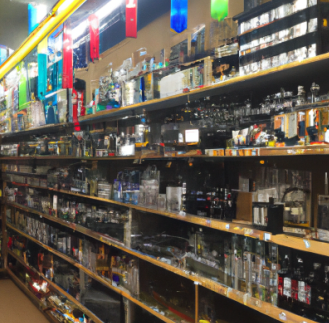When one thousand Liquor Mart workers walked off their job Tuesday, Manitoba Government and General Employees’ Union president Kyle Ross called it a “last resort.”
“We hope it ends sooner rather than later,” Ross said at a press conference.
That’s funny. Many Manitobans would say the same about government liquor stores themselves. Prohibition ended 100 years ago but the government won’t take its monopolistic hands off of the product it once declared illegal. Meanwhile Manitoba’s western neighbours did, better late than never.
In 1994, Alberta privatized its liquor stores and kept the government role as wholesaler. In a few short years, the number of stores and products available exploded while government revenues went up. Liquor-related offenses rose, but slower than population growth. The answer to, “Who would retail something better–the private sector or the government?” should be obvious to everyone.
Saskatchewan, which in the 1940’s tried to replace all private enterprise with government largesse, reversed course under the Saskatchewan Party government in 2007. As the population grew, the province met market demand by handing out new licenses to private stores. Finally, this past spring, the last government stores went private. Neither Saskatchewan society, nor government revenues, have gone off the deep end from private liquor sales.
When marijuana prohibition ended, it went straight to private, and got farther in an instant than liquor retail did. Why is liquor retail a century behind? Ross made his comments in front of a lectern that said, “Catch up, keep up.” If Manitoba wants to do that, it needs to get out of government liquor retail now and never look back.
Heather Stefanson is taking the same super careful route former Sask Premier Brad Wall did and getting the same union counterarguments. The Saskatchewan Government Employees Union actually bought TV ads to proclaim the government stores were funding the province’s roads, schools, and hospitals.
Go people! Get s—faced for the good of society! Think of the children!
No, the only winners from government liquor stores are the unions themselves and the NDP which they support–the party whose ideology matched the government-in-business mentality all along. The public and the taxpayers do not, and consumers really don’t.
Now that the unions have decided to walk off the job, Stefanson should say, “Great idea! Let’s follow Saskatchewan, Alberta and most of the world. It’s time to get the government out of the retailing business!” and finally announce plans to issue retail licenses to entrepreneurs and sell the buildings.
The NDP could not resist making government union liquor sales another rallying cry for the upcoming election. Meanwhile, the PCs could talk about things that matter while chiding their rivals on how they’re stuck in the past limiting the Manitobans from the choices and lower prices now enjoyed by Alberta and Saskatchewan consumer. .
Stefanson could claim a clear, positive accomplishment by her government, while dismantling part of the machine that empowers her opposition. She could even tell citizens exactly what Ross did. It was a “last resort” and “I don’t see (our) tactics as heavy-handed. They’re an opportunity for the employer to understand that we are serious.”
If the province finally got out of the liquor retailing business after the next election, would the NDP really spend anytime talking about getting the government back into this space? ?
Doubtful.
Prohibition must end. Let’s “hope it ends sooner rather than later.”
Lee Harding is a research fellow for the Frontier Centre for Public Policy.



